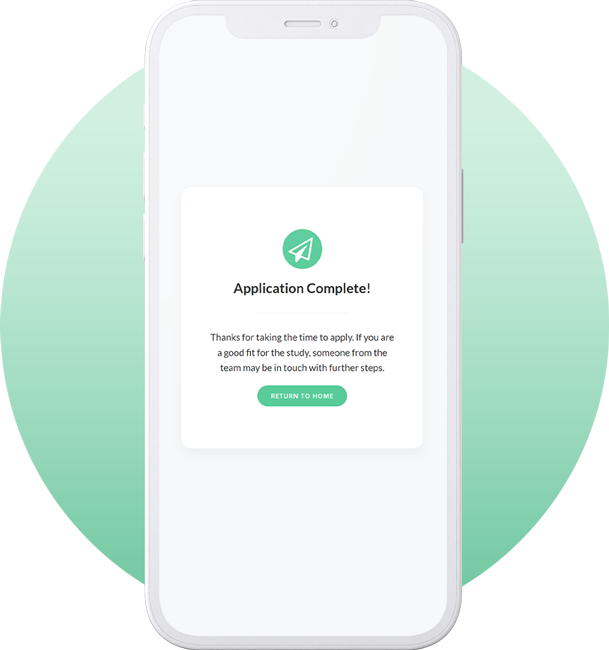Clinical trials 101.
Clinical trials provide valuable insight into how the human body responds to medical advancements, informing clinical researchers on new ways to prevent, detect, treat, or cure diseases. They offer hope for people in the present that we can find better treatments in the future.
Let’s break down what clinical trials are, why they’re important, and how 1nHealth fits in.

Participation
is vital and that’s where we come in, matching participants with the right trials.
18K
total studies actively recruiting in the United States.
91%
of participants rate experience as excellent or good.
95%
of volunteers said they would participate in another study.
75%
of patients would have participated in a study had they known about it.
Clinical trials are research studies that involve people. These trials are used by researchers and medical professionals to evaluate the results of introducing participants to a certain medical, behavioral, or surgical intervention.
Clinical trials are how researchers test the safety and efficacy of new treatments before they go to market. Researchers spend years working with different groups of people and the treatment making sure that no stone is left unturned. An administration that handles approval of medications and therapies is operating alongside the trial through the entire process.
Before a governing board (such as the FDA in the US) can approve a trial to start, many lab tests and studies are done to test the safety and effectiveness of the trial. That is when the 4 stages of trials can start.

Phase 1
The first phase after the approval for trials focuses mainly on safety. Researchers use new treatment on small group of healthy adults to look for any possible side effects.

Focus on safety
Phase 2
The second phase has a larger number of participants and focuses on the effectiveness of the medication, device, or behavioral intervention for the population it was designed for.

Check effectiveness
Phase 3
The largest and most diverse group of volunteers participate in this phase to check the treatment in different populations of people and, if needed, possible dosage before government board approval.

Effectiveness across populations
Phase 4
This is the stage of trials that occurs after the government board approval, where the efficacy and safety are continuously monitored in diverse and large populations of people in the market over a longer period of time.

Long-term efficacy & safety
Why participate?
Whether you’re in good health and want to help move science forward, or you’re looking to try the newest treatment for an illness—participating in clinical trials comes with a lot of benefits for you and the rest of the world, including:

Check out our current open studies.
©2023 – 1nHealth. All Rights Reserved | Legal Notice & Terms of Service
